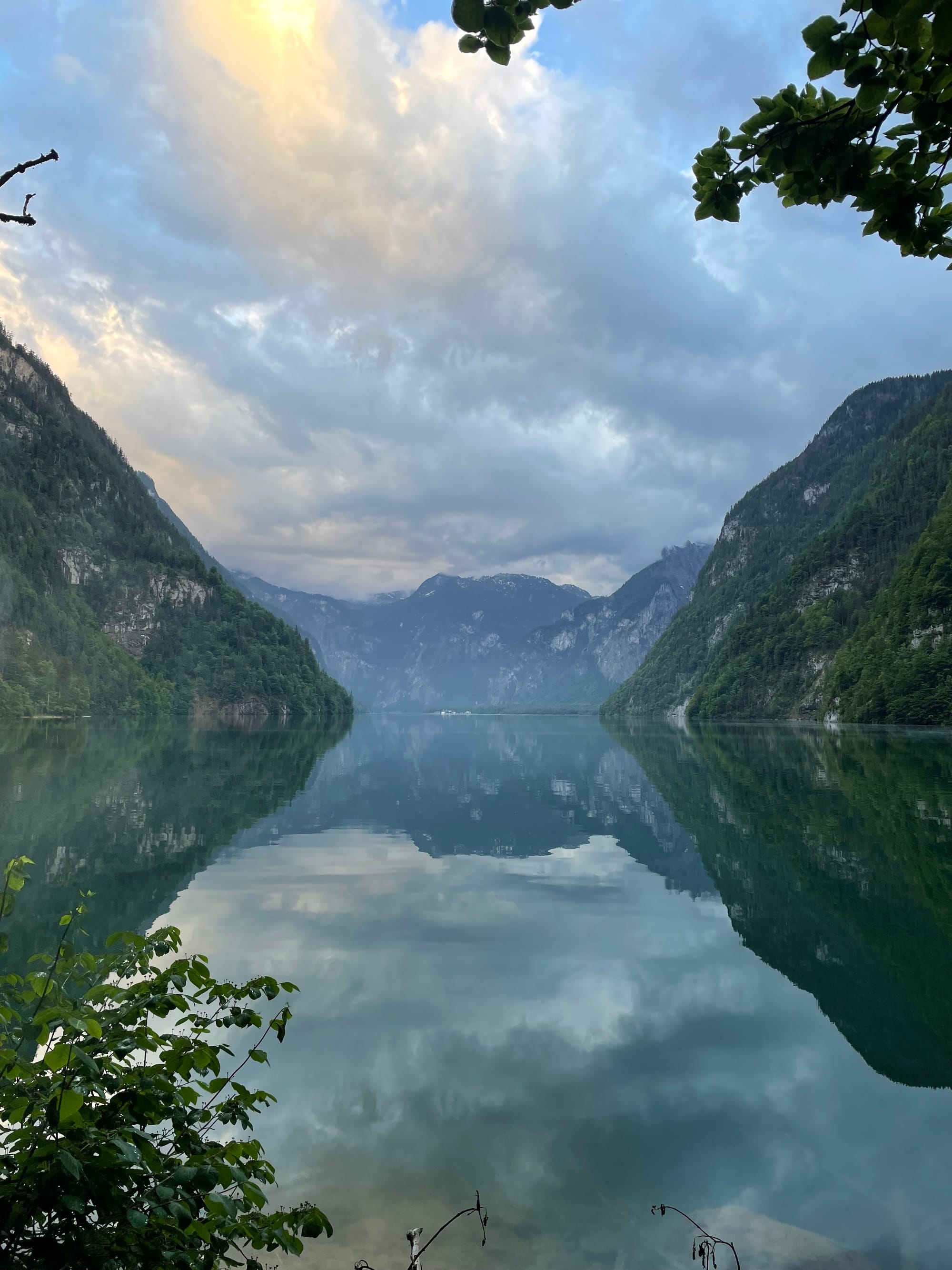I've wanted to write my thoughts for those looking to move to Munich for a while. I moved over 3 years ago and finally feel like I can write on the topic with enough details.
My Journey
I left my full-time job in Ankara🇹🇷 to pursue my master's studies at the Technical University of Munich. This was my first experience living abroad, and I was excited about immersing myself in a different culture, adapting to a new working environment, meeting new people, and exploring the stunning natural surroundings of Munich. During the first year, the novelty and excitement can color your impressions, making everything seem wonderful as you adapt to a new culture. However, as time passed, I started to notice more persistent challenges. Here, I'll strive to provide a balanced view of Munich, avoiding overly harsh criticisms or idealized impressions.
Initial Expectations and Reality
Despite all the excitement of discovering a new place, there was a deep sadness in leaving behind many aspects of my life. The 26 years of experiences, the language I've always spoken, the foods I love, the culture I know, and most importantly, the people I cherish — all remained in Turkey. In many ways, moving to Munich felt like starting over, like being reborn into a completely new world.
After the first month, I began to adapt to my new environment. I was fortunate to have welcoming and kind colleagues at my company who genuinely cared about helping me integrate into both the workplace and Munich. Life was quite busy, as I was juggling part-time work and university courses. Additionally, I was learning German, though I quit a bit after passing the A1 level, and I was also exploring Germany and making new friends After a few months, I noticed that localcs often seemed quite reserved, especially compared to the friendliness I'm used to back home. Initally, it felt hard to make friends with locals. Things got even tougher when people realized I couldn't speak German well. Sometimes, I felt alienated because I couldn't speak the language well, leading me to feel somewhat excluded. This situation usually leads expats to spend time with other expats. In these groups, we all understand what it's like to be new and not fully fit in, which brings us closer together. Here, away from the challenges of fitting in with the local culture, expats find comfort and friendship with one another.
Embracing the German Way
It's essential to understand that complaining about subjects discussed below won't change the situation; this is simply how the system works here. Rather than complaining, understanding and adapting to this structured approach can significantly smooth out daily interactions and reduce stress. Initially, this rigidity might seem daunting, but it truly reflects a broader cultural preference for order and predictability
Navigating the Post System
In Germany, your mailbox becomes a central part of your daily life. Be prepared to handle a significant amount of paperwork. Embracing the German post system and its bureaucratic nuances is part of integrating into society. The more you come to terms with this, the better you'll feel, and the smoother your interactions will become.
Scheduled Life and Planning Ahead
One notable aspect of living in Germany is the emphasis on planning and scheduling, even for simple or routine matters. Spontaneity is rare, particularly when it comes to appointments and meetings. Whether it's a doctor's visit, a service appointment, or a social gathering, scheduling ahead is the norm. Emergencies are, of course, exceptions, but for most other aspects of life, Germans prefer to have everything planned and confirmed well in advance.
Everyday Life
Sundays and evenings in Germany are notably quiet, with most shops closed. This change of pace might require some adjustment, but it offers a wonderful opportunity to unwind or enjoy the outdoors. Recycling is taken seriously, too; you'll need to sort your trash carefully into designated bins, helping keep the environment clean. And when it comes to timing, Germans value punctuality—whether it's catching a train or meeting a friend, being on time matters here.
Munich Marvels
Freedom & Personal Space
I've come to deeply appreciate the freedom and respect for private space that defines life here. The city allows for a personal kind of liberty that I hadn't experienced back home. Whether it’s deciding to spend a day exploring one of the many parks or choosing a quiet corner in a café to lose myself in a book, I feel free to do things my way. What impresses me most is the unwritten rule of personal space that everyone adheres to. In public areas, people are mindful of each other's boundaries, allowing everyone to enjoy their activities without intrusion. This respect is something you feel in the day-to-day rhythm of the city—from the way people queue at tram stops to how they enjoy the sun in the Englisher Garden, everyone gets their space.
For me, the balance of community and individuality in Munich has significantly enhanced my experience of living here. The city's layout, with its spacious parks and efficient public transport, really facilitates this. It gives me the freedom to explore at my own pace and the space to enjoy moments of solitude, which I value highly. This blend of easy access and personal space is an aspect of Munich I deeply appreciate.
Nature
Munich stands out as one of the world's major cities best preserving its natural surroundings. For lovers of green parks, dense forests, and majestic mountains, the city is simply breathtaking. The city offers various natural parks where you can clean your head in nature sounds and pure silence. On hot summer days, I especially enjoy biking under the shade of tall trees, which provides a cool break from the sun.
What’s great is how accessible these escapes are; lakes like Starnberger See, Ammersee, and Tegernsee are just an hour away by public transport. These spots are perfect for a day of hiking or simply relaxing by the water with friends. Each lake offers a chance to swim, boat, or just soak up the sun.




Through My Eyes
Festivals
In Munich, you’ll find a rich culture of festivals throughout the year. From the world-famous Oktoberfest to the diverse Tollwood Festival, the cozy Sommerfest, and the charming Christmas markets, there's always something happening. Each event brings a distinct atmosphere to the city, offering a taste of local culture and a chance to join in the communal fun. Whether it’s sampling a variety of beers at Oktoberfest, exploring unique crafts at Tollwood, relaxing in the summer vibes of Sommerfest, or warming up with hot drinks at a Christmas market, these festivals are perfect opportunities to experience the joyful spirit of Munich.
Summer
Munich’s summers are something special, with their endlessly long days and the kind of greenery that makes you want to stay outside. This city is a heaven for anyone who loves nature—with forests, lakes, and mountains all within easy reach.
I’ve spent countless hours biking around, sometimes with a group of friends, other times solo, taking in the sights and sounds. Despite being such a bustling city, there's a surprising calmness to Munich. While a few of my friends find it a bit too quiet for their liking, craving more noise and chaos, I’ve come to appreciate the peace. There’s nothing like a long walk or a leisurely bike ride, the city’s soundtrack provided by chirping birds, to clear your mind. This blend of accessible natural beauty, the freedom to explore it at your own pace, and the city’s underlying serenity has really shaped my experience here over the last three years.
Munich Hurdles
Missing sun in Winters
Coming from Turkiye, where the sun warmly embraces the land almost year-round, I found Munich's long, dark, and cold winters to be a stark contrast. The days often unfold as a continuous stretch of grey, with clouds hanging low and the sun a rare guest. This dramatic change in weather affects everything from your mood to your daily routine. The cold bites deeper when you're used to mild winters, and the lack of sunlight can feel surprisingly heavy on your spirits. Although I knew what to expect from Munich's winters, living through them has been a challenging experience.
Bureaucracy at its finest
Bureaucracy in Munich is a relentless beast, like trying to solve a puzzle that just keeps getting more confusing. Honestly, it feels like they enjoy making things as hard as possible. If you come from a place where things are more laid-back, the German way of doing stuff can really drive you up the wall. It's not just the endless forms and rules that make you scratch your head in wonder; it's also the cold stares and no-smiles service that makes you feel like you're more of a nuisance than a newcomer. I have to say it straight – there's no way to put a nice spin on this. The bureaucracy here can be a real pain, turning simple tasks into big headaches. Sorry for the bluntness, but dancing around the truth won't make navigating this bureaucratic maze any easier. It's like being thrown into a sport you've never played before, with all the rules explained in a language you don't speak.
Housing Circus Dance
If you've decided to settle in Munich, brace yourself for a challenging apartment-hunting process. Munich is one of the most expensive cities in Europe in terms of rent per square meter. However, the main issue isn’t just finding an apartment with reasonable rent. Securing a rental here feels almost as demanding as applying for a job. You'll need a solid CV, a credit score, and perhaps even a cover letter. If you make it past this initial screening, you'll get the chance to visit the property. But remember, there will likely be at least 7-8 other candidates inspecting the apartment with the same hopes as you. If you end up being the "chosen lucky one," you'll be ready to sign the lease. My advice for those searching for an apartment is to apply to as many places as possible, and even if you don't speak German, try to write your cover letter in German. Keep in mind that this process can typically take anywhere from two to four months.
Student Life
Technical University of Munich
At TUM, my studies were really rewarding. The courses were top-notch, thanks in large part to the freedom to choose what I wanted to study instead of a fixed curriculum. This let me dive deep into the subjects I was most passionate about. The people I met, from my classmates to my professors, were incredible too.
I even had the opportunity to attend a lecture by Martin Klepmann, the author of the famous book "Designing Data-Intensive Applications" (https://martin.kleppmann.com/), which was a highlight given his expertise. The supportive community at TUM made a big difference, always ready to help and share ideas. This not only enhanced my learning but also helped shape my career path. Overall, my time at TUM added a lot of value to my life in Munich.
Part-Time Work During My Masters
As a student in Munich, holding a student visa allowed me to work up to 20 hours per week. I found that working part-time as a software engineer greatly enriched my experience while I pursued my master's at TUM. The reputation of TUM certainly opened many doors when I applied for jobs around the city. Munich isn't cheap, especially when it comes to housing, but the salary from my part-time job was decent enough to cover my living expenses and still enjoy a social life.
More than just helping financially, working part-time also let me build a parallel path in my career right here in Munich. It gave me a real taste of the local working culture, an experience that’s just as valuable as any academic learning. Balancing work and study had its challenges, but the skills and insights I gained have been invaluable.
Work Culture in Germany
Working as a software engineer in Germany comes with several benefits that are standard across the industry. Employees typically enjoy comprehensive sick leave, generous vacation days (20 - 30 days), and social insurance which includes health, pension, and unemployment insurance. These benefits are crucial as they ensure a safety net for both health and financial well-being, allowing professionals to maintain a good work-life balance.
The vibe at my workplace is also pretty cool— it's young, open-minded, and encourages us to be creative and inclusive. However, from discussions with some friends who are also working in the same field, I've come to realize that my positive work environment is not a common scenario for everyone. They often describe their work settings as quite impersonal and strictly professional. Colleagues might just focus on their tasks, interact minimally. This can be especially challenging for expats or those new to Germany, as the lack of casual interaction makes it difficult to break the ice and build relationships. This disparity shows that while some companies foster a vibrant and inclusive atmosphere, others may still adhere to a more traditional, reserved workplace culture.
Turning the Page: Deciding My Future in Munich
I hope German readers understand that my intent isn't to criticize harshly but rather to set realistic expectations. Many people arrive expecting perfection only to encounter familiar challenges. It's important to be realistic about what living here looks like. Germany has not solved all racial or bureaucratic issues in their society. They are still trying to, which is more than I can say for some.
To be honest, I'm frustrated with the persistent bureaucracy and high tax rates, which complicate running my work setup. While I've somewhat adjusted to life here, the inefficiencies occasionally push me to consider other locations. Not having learned German well also puts me at a disadvantage, making it harder to fully integrate.
Despite these challenges, I enjoy many aspects of living in Munich. The city's rich cultural scene, safe environment, and convenient location for European travel are significant positives. I appreciate Munich and all it offers, but I'm at a crossroads regarding my future here. Accepting the problems mentioned above and not battling them, along with achieving a good level of German, definitely promises a life quality above a certain standard. Let's see what happens as I continue to weigh the pros and cons of staying or exploring new opportunities elsewhere.
